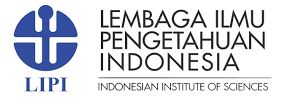Who Should Exercise Child Custody after Divorce?
Abstract
By law, children under the age of ten must be passed on to their mothers. Meanwhile, children over the age of ten have the right to vote, even though in reality they will be cared for more by their fathers. This study aims to find out how the implementation of post-divorce child custody that occurred in Sidenreng Rappang District was not following the judge’s decision. This study uses a sociological juridical approach which concludes that the implementation of post-divorce child custody is not by the decisions of the Religious Courts. This research is descriptive, namely research that provides data about something or social phenomena that develop in society so that this research is expected to obtain a comprehensive, complete, and systematic picture of the object to be examined. The Plaintiff’s lack of sense of responsibility, and mental condition that is not ready for divorce is the trigger for child custody not being fully taken over by the ex-wife. Defendant feels a lack of sense of responsibility from Plaintiff who is not ready for a divorce. A sense of responsibility that is not realized that children are entrusted by God who will be held accountable later.
___
References
Books with author:
Azizah, M. (2019). Peran Ibu Dalam Mengasuh Anak Pasca Perceraian di Kecamatan Srengat Kabupaten Blitar. Surabaya: UIN Sunan Ampel Surabaya.
Falah, M. F. (2017). Proses Penetapan Itsbat Nikah terhadap Perkara Contensious Dalam Perspektif Hukum Islam (Analisis Putusan Pengadilan Agama Tanjung Karang Nomor: 0234/Pdt. G/2015/PA. Tnk). Lampung: UIN Raden Intan Lampung.
Malik, H. I. (2021). Pemenuhan Hak-hak Anak Pasca Perceraian (Implementasi Pasal 41 Undang-undang No. 1 Tahun 1974 tentang Perkawinan dan Pasal 156 Kompilasi Hukum Islam (HKI)) di Pengadilan Agama Kabupaten Ponorogo. Ponorogo: IAIN Ponorogo.
Nugrahani, F., and Hum, M. (2014). Metode Penelitian Kualitatif. Solo: Cakra Books.
Article journals:
Amajihono, K. D. (2018). Akibat Hukum Perceraian dari Perkawinan yang Tidak Dicatatkan di Kantor Catatan Sipil. Jurnal Education and Development, 6(1), 141-153.
Aziz, N. M. (2012). Urgensi Penelitian dan Pengkajian Hukum Dalam Pembentukan Peraturan Perundang-Undangan. Jurnal Rechts Vinding: Media Pembinaan Hukum Nasional, 1(1), 17-31.
Eric, E. (2019). Hubungan antara Hukum Islam dan Hukum Adat Dalam Pembagian Warisan di dalam Masyarakat Minangkabau. Jurnal Muara Ilmu Sosial, Humaniora, dan Seni, 3(1), 61-70.
Islami, I. (2019). Legalitas Penguasaan Hak Asuh Anak Dibawah Umur (Hadhanah) kepada Bapak Pasca Perceraian. Jurnal Al-Qadau: Peradilan dan Hukum Keluarga Islam, 6(2), 181-194.
Khair, U. (2020). Pelaksanaan Hak Asuh Anak setelah Terjadinya Perceraian. JCH (Jurnal Cendekia Hukum), 5(2), 291-306.
Krisharyanto, A. R. A., Hutagalung, S. M., and Supriatna, S. (2019). Akibat Hukum Kawin Kontrak terhadap Kedudukan Istri, Anak dan Harta Kekayaan dalam Perspektif Hukum Islam. Krisna Law, 1(3), 7-16.
Prayogi, A., and Jauhari, M. (2021). Bimbingan Perkawinan Calon Pengantin: Upaya Mewujudkan Ketahanan Keluarga Nasional. Islamic Counseling: Jurnal Bimbingan dan Konseling Islam, 5(2), 223-242.
Purwaningsih, P. (2014). Hak Pemeliharaan Atas Anak (Hadhanah) akibat Perceraian Ditinjau dari Hukum Positif. Yustisi, 1(2), 55-65.
Santoso, L., and Abror, D. (2020). Pola Pemenuhan Hak Asuh Anak pada Keluarga Buruh Migran Indonesia: An Maqashid Shariah Perspective. Al-Syakhsiyyah: Journal of Law & Family Studies, 2(1), 56-73.
Singal, E. C. (2017). Pembagian Harta Gono-Gini dan Penetapan Hak Asuh Anak Akibat Perceraian Berdasarkan Undang-Undang Nomor 1 Tahun 1974. Lex Crimen, 6(5), 90-97.
Widanengsih, A., and Maryandi, Y. (2022). Analisis Putusan Hakim Pengadilan Agama mengenai Hak Asuh Anak kepada Ayah. Jurnal Riset Hukum Keluarga Islam, 2(1), 53-60.






1.png)






.png)

















